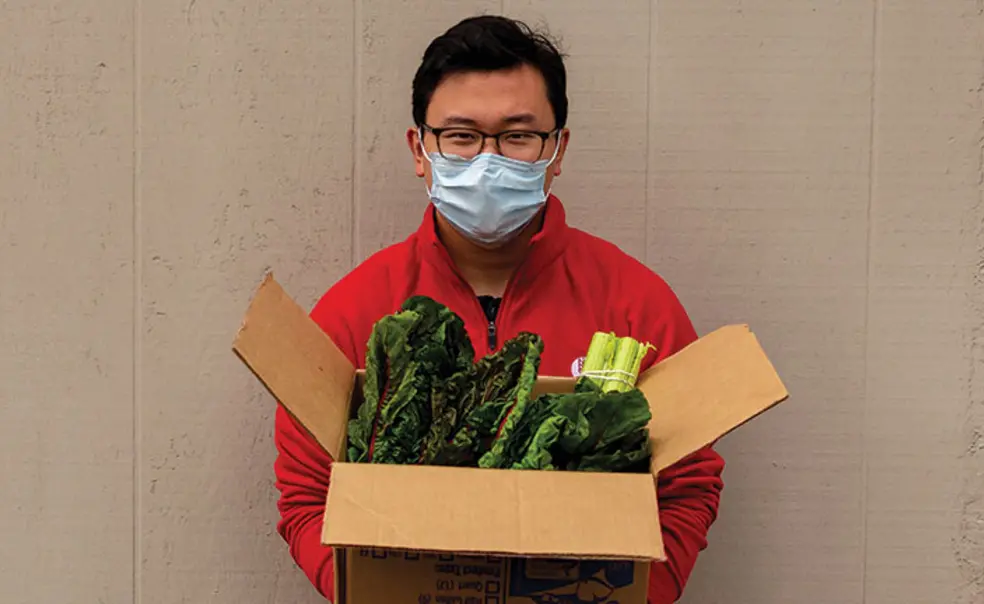At a California Food Bank, Anthony Shu ’16 Watches Needs Grow
“I try to remember the individuals who make up these statistics”
Anthony Shu ’16 is the marketing coordinator at Second Harvest of Silicon Valley, a food bank in California’s Bay Area.
At Second Harvest of Silicon Valley, I share stories of our clients’ resilience and communicate how our food bank serves more than a quarter-million people at 1,000 sites each month. We provide the nutrition our community needs to thrive, and our clients’ achievements are at the center of our work.
Last fall, we celebrated a mother who provided her family with Christmas decorations and dinners even when they were homeless. Soon, she’ll be graduating from a prestigious university with a degree in astrophysics. This spring, kids told me how their parents’ cooking gives them superpowers. They dream of becoming astronauts, designers, artists, and Ivy League alumni.
However, in this time of crisis and social isolation, I’ve struggled to understand what thriving might look like.
In early April, the adjutant general of California visited two of our warehouses where uniformed National Guardsmen have largely replaced our volunteer force (though community volunteers still run our distribution sites). The major general referred to COVID-19 as likely the largest catastrophe to hit the United States in a century. He asked the soldiers to prepare for a months-long mission at Second Harvest.
Our Food Connection Hotline has been receiving about 1,000 calls a day instead of the usual 200 inquiries, and our website’s Get Food page has seen traffic increase tenfold since sheltering-in-place began. These numbers are overwhelming. I try to remember the individuals who make up these statistics.
After all, the high cost of living in Silicon Valley had already put low-wage workers at risk. Now we’re all confronted with the vulnerability that our neighbors face each day. Service employees who sustain the tech industry are losing their paychecks. Restaurants have closed, leaving servers without jobs. Newly unemployed parents must provide breakfast and lunch for their children during the school week. Many local families lived on the border of needing assistance before this crisis and are now asking for help for the first time.
With the help of the National Guard, we’re packing hundreds of thousands of food boxes that can be distributed safely. We’re opening a new 40,000-square-foot warehouse (our fourth facility) with support from corporate partners. Volunteers and partner agencies are transitioning their sites to drive-throughs, often with creative setups. Many schools have continued to offer hot meals, and community members deliver groceries to neighbors’ homes. I’m struck by the willingness of clients to help others despite their own need. One woman visited a distribution site to receive food and, on noticing the need for volunteers, remained to serve other clients, despite her growing fear of becoming ill.
Many clients will require food assistance as unemployment continues to rise, and new operational challenges arise each day. Nevertheless, I’ll continue to search for stories of those thriving in this difficult time.
PAW reached out to alumni who are on the front lines of the COVID-19 crisis or are affected by it in different ways. Read their essays here. More will appear in our next two issues and online over the next few weeks. Write to us at paw@princeton.edu with your own story.












No responses yet